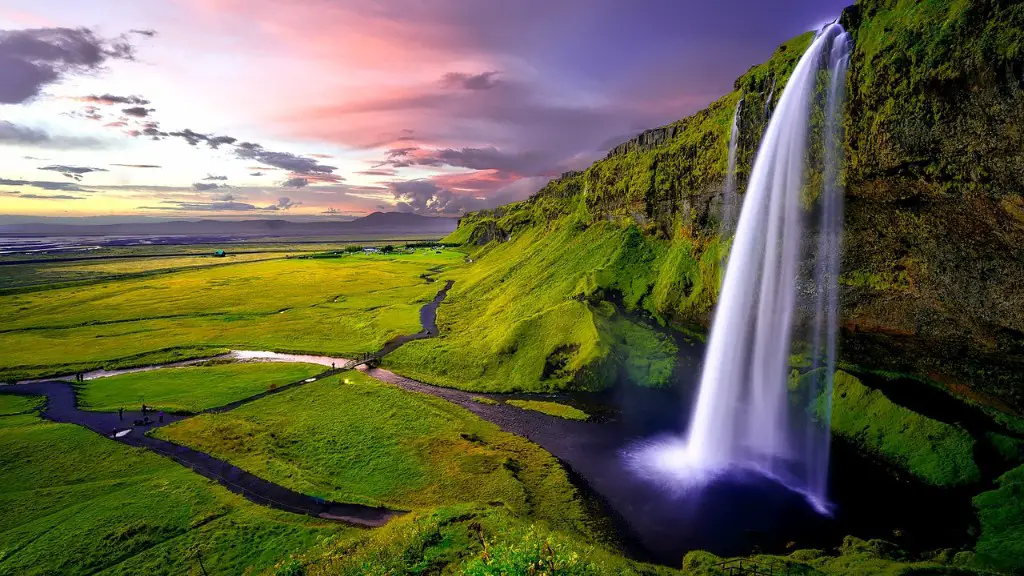Why did People Settle by the Nile River
Ancient Egyptians were among the first to establish one of the world’s earliest civilizations along the banks of the Nile River. Living in the region’s thick vegetation and near the marvelous monuments and temples, they surrounded themselves with beauty, comfort, and easy access to essential resources. The question then arises, why did people choose to settle by the Nile river?
Archaeologists and historians have discovered a variety of impacts and factors responsible for the flourishing of settlements at the Nile Valley, centered around sustenance, agriculture, and defense. The Nile river provides various advantages for the population of Egypt and offers a series of benefits that aid in the development of ancient civilization.
To begin with, the river provided an effective and efficient means of transportation. Using the river, goods could be transported from one point to another with ease, allowing for an increased level of trade and commerce. Furthermore, it allowed for the transportation of stone blocks, which was an indispensable requirement for the construction of the various forms of architecture found in Ancient Egypt.
Agriculture
Another primary benefit of the Nile river was agricultural. The Egyptians had access to the River’s yearly cycle which would lead to a great harvest and yield. This agricultural boom would further increase trade and commerce while also boosting population numbers as a result of the adequate sustenance. As the river flooded every summer, it brought nutrient-rich silt that was essential for the growth of lush vegetation along the banks. Riverdale communities were consequently able to flourish, and what started as a small settlement of nomadic herders soon grew into bustling cities.
Defense
Egyptian settlements along the Nile also benefited from its protective factor. It served as a natural defense for settlements as its complicated network of tributaries made it hard to access and impossible to conquer due to the various twists, turns and shallow depths. Furthermore, the marshy delta that branched out from the river also made it difficult for armies to navigate.
Access to Resources
The availability of easy to access resources lying near the river was another factor that compelled people to settle by its bank. Fertile soil, vegetation and wildlife flourished near the river making it the perfect breeding ground for early settlement. Governments were able to rely on the resources available near the rivers to contribute to the development and maintenance of the civilization.
Religion
The Nile also served as an important spiritual source for many Ancient Egyptian religions which sought to explain its various elements such as flooding and receding. These natural phenomena were considered mysterious and sacred by the people living in this area and thus, it attributed religious significance to the river. This spiritual aspect also played a big role in building the great temples near the Nile banks.
Influence in other Cultures
The Nile river and the civilizations that resided along its banks had far-reaching influence on other contemporary cultures and civilizations. Greek and Roman scholars and writers adopted the cultural and religious aspects of the early Egyptian civilizations and spread it to their own. Thus, the influence of the Nile can be felt even in today’s world.
Political Developments
Lastly, the importance of the river was such that it led to the development of powerful political systems within the region. With the region being blessed with access to abundant resources, strong rivalries for political control set between settlements to become the leading dynasty in the area. These rivalries consequently led to the creation of various governments, such as the Pharaohs of Egypt, which laid the foundation for lasting political development in this region.
Environmental Changes
Environmental changes over long time periods played a significant role in the growth and development of Egypt. The region went through various climatic and temperature shifts that caused fluctuations in the Nile levels, which could either cause vast amounts of damage or bolster the infrastructure of the region. Ultimately, the Nile’s environment allowed it to become a stable base upon which civilization could thrive and develop.
Conclusion
In conclusion, the presence of the mighty Nile river enabled the formation and development of the ancient Egyptian civilization. Throughout its nearby communities and settlements, it provided access to valuable resources and numerous advantages that allowed the population to thrive and prosper. The advantages of the river were such that it kept sustaining a large population for centuries and contributed to the growth of some of the most powerful empires of the Ancient world.


